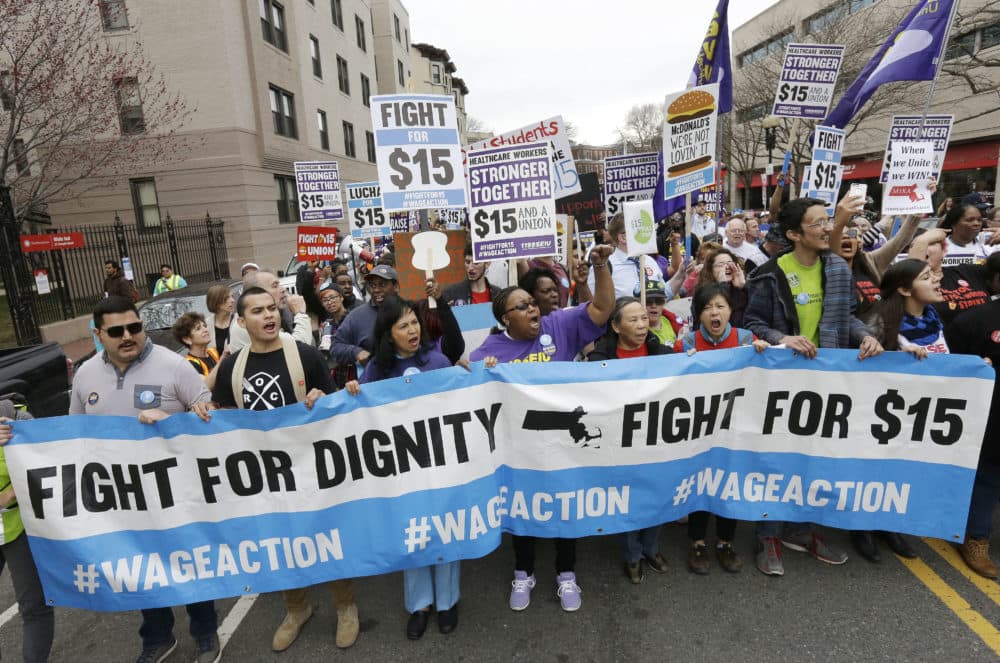Advertisement
New Year, New Minimum Wage: Some Mass. Businesses Welcome The Increase
Resume
Massachusetts keeps chugging toward a $15 minimum wage. Next stop: $12.75.
The wage floor rises New Year's Day and climbs $0.75 annually, until 2023. Some businesses have complained about rising labor costs, but others say they are doing better by paying workers more.
"We do it because it's the right thing to do," said Rob Everts, co-CEO of Equal Exchange in West Bridgewater. "It's also in our own, enlightened self interest. Paying a good, strong wage cultivates loyalty. Turnover here is low, and that helps us at many levels."
Everts' company employs 150 people, some of whom pick and pack the fair-trade coffee that Equal Exchange sells all over the country. It's the kind of job that often pays minimum wage, but the starting rate at Equal Exchange is about $15 an hour — the target the state aims to hit in a few years.
"And as a business executive in Massachusetts, I'm not alone," Everts said. "There are hundreds of Massachusetts business leaders and thousands across the country who support increasing the minimum wage, over a period of years, to $15."
Everts is among more than 300 Massachusetts executives who've publicly supported the minimum wage hike. Massachusetts is among seven states and the District of Columbia that will have $15 minimum wages in coming years, or already do, according to the National Conference of State Legislatures.
Groups like the National Federation of Independent Business argue the increase may prove counterproductive, if higher payrolls cut into profits and lead to layoffs.
Emily Kanter said that scenario didn't play out when her company, Cambridge Naturals, went to a $15 minimum in 2016.
"We saw our customers really respond to that," said Kanter, the company's co-owner. "They felt good about coming to shop with us because they knew we were treating our employees really well."
Cambridge Naturals, which sells health and wellness products, has 32 employees. Kanter said sales increased 11% in the year after the company raised its starting pay.
Megan Driscoll reports similar success at PharmaLogics Recruiting, the Quincy-based talent placement firm she founded. Driscoll boosted the minimum base salary from $38,000 to $50,000 for the company's roughly 100 employees a few years ago — a move that cost half a million dollars in total.
"And I expected, quite frankly, to have a $500,000 deficit in profit," she said. "That is not what actually happened. We made more profit at the end of 2016 than we had in 2015, even though we infused $500,000 into salaries. So, I'm a living example that doing the right thing can be good for your business."
Driscoll said the simplest explanation is that happier workers perform better.
There is no guarantee things will work out so well for every company, of course. But as Massachusetts continues on the path to a $15 minimum wage, some executives say they are having surprisingly good experiences with higher labor costs.
This segment aired on January 2, 2020.
